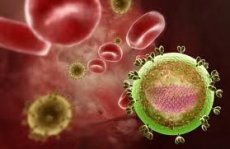Medical expert of the article
New publications
Scientists have discovered a new protein that prevents the development of HIV infection
Last reviewed: 01.07.2025

All iLive content is medically reviewed or fact checked to ensure as much factual accuracy as possible.
We have strict sourcing guidelines and only link to reputable media sites, academic research institutions and, whenever possible, medically peer reviewed studies. Note that the numbers in parentheses ([1], [2], etc.) are clickable links to these studies.
If you feel that any of our content is inaccurate, out-of-date, or otherwise questionable, please select it and press Ctrl + Enter.

Scientists have moved one step closer to understanding how one of our body's proteins helps stop the human immunodeficiency virus (HIV-1) from reproducing.
The study, conducted by scientists from the University of Manchester and published in the journal Nature, serves as a kind of roadmap for the development of fundamentally new drugs for the treatment of HIV infection.
Scientists from the US and France recently discovered that the protein SAMHD1 was able to stop HIV replication in a group of white blood cells called myeloid cells.
Now, scientists from Manchester have shown how SAMHD1 prevents the virus from replicating in these cells, opening up new possibilities for creating drugs that could mimic this biological process to prevent HIV replication in immune system target cells.
"HIV is one of the most common chronic infectious diseases on the planet, so understanding its biology is critical to the development of new antiviral drugs," said Dr Michelle Webb, who led the study. "The protein SAMHD1 has previously been shown to prevent the HIV virus from replicating in cells, but how it does this was unknown. Our research shows that SAMHD1 alters the structure of deoxynucleotides, which are the building blocks needed for viral replication."
"If we can stop the virus from replicating inside these cells, we can prevent it from spreading to other cells and stop the infection from progressing," the study's author emphasized.
Co-author Dr Ian Taylor, from the National Institute, added: "Our challenge now is to determine the mechanism of action of this protein on the virus's deoxynucleotides at a molecular level. This could open the way to new therapeutic approaches to treating HIV-1 and even the development of a vaccine."


 [
[